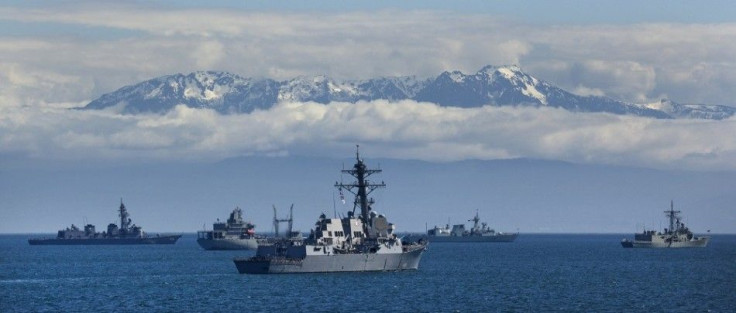New Zealand Navy Films Illegal Toothfishing Of Poachers Near Antarctica

Illegal fishing vessels continue to ignore the New Zealand navy patrols despite being caught red-handed. A crew from the navy patrol boat of New Zealand was able to secretly take photos and videos of poachers hauling nets of the prized toothfish from the ocean near Antarctica.
Authorities said the recent confrontation between the poachers and the New Zealand navy has produced detailed evidence, which was regarded as the first time in Antarctic waters. Regulators have long suspected poaching activities in the area but have found it difficult to monitor since it is estimated to be the similar in size to the continental U.S.
According to reports, each illegal fishing vessel can hold more than $1 million worth of toothfish from the Antarctic. The fishes are marketed in North America as Chilean sea bass. The Guardian said the three ships that the New Zealand navy encountered between Jan 6 and 13 were about 70 miles from the Antarctic coast, The Guardian reported.
Lt. Cmdr. Graham McLean said the fishing boats had quickly hoisted flags, indicating they were vessels from Equatorial Guinea. When the navy attempted to board the boats to check documentation, each of the three captains of the ships refused to give in to demands. The patrol officer added that he decided to avoid using force to board the boats since there were 5-metre swells that made it “too dangerous” for such actions.
New Zealand has alerted 190 countries through Interpol as it hoped the move can make it difficult for poachers to unload their illegally caught toothfish. New Zealand Foreign Minister Murray McCully said it will be the beginning of a lengthy process if the government will use its diplomatic influence on countries it suspects of condoning poachers.
Despite the vessels’ use of Equatorial Guinean flags, McCully was told by Guinea’s foreign minister that the ships were not registered there. Illegal toothfishing is affecting other species in the region, according to Andrew Wright, executive secretary of the Commission for the Conservation of Antarctic Marine Living Resources. He revealed poachers are using nets up to 15.5 miles long, and other fish species can get caught afterward. The commission, which monitors international fishing in the region, has a list of 17 ships on its Web site that were suspected of illegal fishing.
To report problems or leave feedback, contact: r.su@ibtimes.com.au






